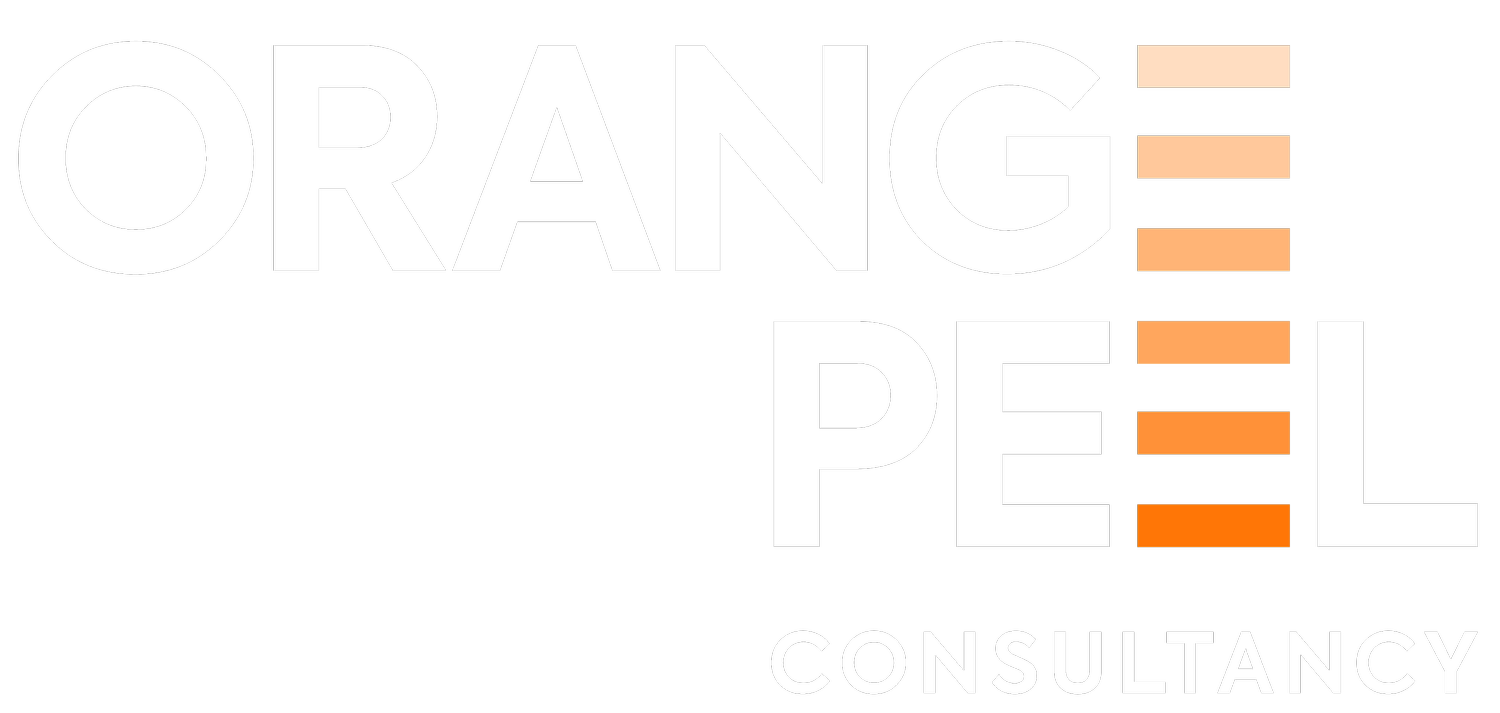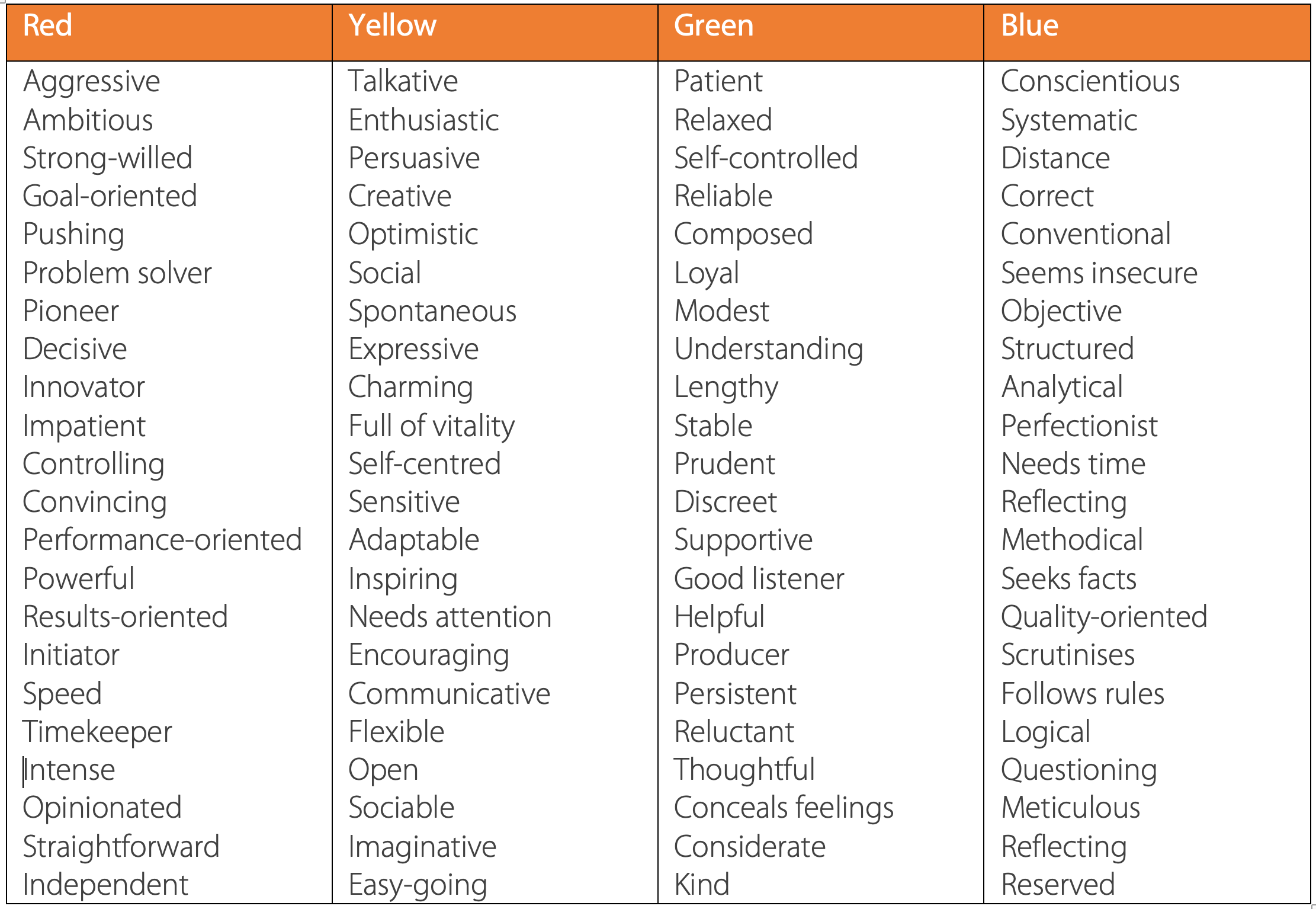Building a Team of Idiots!
I’ve just finished reading the excellent, “Surrounded by Idiots” by Thomas Erikson. Now, I bet you’re wondering where I’m going with this. The fact is the title of the book doesn’t in anyway purport to be a guidebook on how to deal with idiots in your organisation or team. Well, in fact, it does! But only because, as individuals, we perceive those around us, who don’t behave in the way we do, as idiots. The reality is that none of us are idiots, or maybe we are all idiots! In fact, we’re just all different and Erikson discusses 4 types of human behaviour: Red, Yellow, Green and Blue.
No one person is one colour alone. In fact, most people have elements of two or more colours, although what is most common is a dominant colour. For me, I am mainly red, but I am quite high on yellow and to a slightly lesser extent, I display elements of blue. This can be a challenge for those I work with. The red in me wants the job done quickly and the blue in me wants it done perfectly. You see the problem!
The table below shows the typical characteristics of each type of human behaviour. As a quick exercise, go through each list and tick the characteristics that apply to you. Add them up for each column and then you will see what your dominant behaviour type is.
The book of course, goes into far more detail around each personality type and there is a paid online tool (see https://www.surroundedbyidiots.com/en/disc-analysis/) if you want a more in-depth assessment of what kind of idiot you are! It discusses each behaviour type, how to relate to each type, group behaviours and the strengths and weaknesses of each type.
Why is this important?
Most of us work with other people. Whether this is within an organisation or a project team, the chances are, we are working together. We are of course human and that means we are social and inherently, we are all different. This means that we won’t always agree with each other. We may not like working with some people. We may operate at different speeds. We will have different expectations on what the output might be. Some of us might be flexible and open to change, others may not and prefer to be rigid in their approach. Some of us prefer to work alone, some of us prefer to work in a team. And mostly, some of us might think that because those we work with don’t understand what we do, we might think of them as idiots. The fact is an organisation needs idiots! It needs idiots from each behaviour type. It certainly wouldn’t be good if an organisation or team was made up of one colour only. Can you imagine a team of yellows? A team of people pleasers, flitting from one thing to another but never actually getting much done. Or perhaps a team of blues, spending hours on end, analysing data to the nth degree but rarely reaching conclusion.
What does a perfect team look like?
Well, as I said earlier, the perfect team is made up of a mix of idiots, but it also depends on what the team is trying to do and it might be that in some jobs, the balance may work better if there were more idiots of a certain type. Can you think of examples where you might need say, a higher proportion of greens to other types of idiot?
Building a Team of Idiots to deliver a Construction Project
I’m sure many of us working in construction are quick to point the finger at the idiot(s) in the team. Culturally, we are quick to blame. The huge challenge of working in a Project Team is that the team is formed for a relatively short period of time and is disbanded when the project completes. It’s not like an organisational team which grows organically and matures with age. In project teams, quite often, complete strangers come together very quickly and are expected to perform optimally from the start. In addition, Project Teams are usually formed not out of choice but of circumstance. Project Teams are usually formed as a result of a competitive tender exercise. There isn’t a huge amount of choice that takes place and certainly, no psychometric assessment of those who will be working on the project, which is the norm these days for recruiters in business.
I often look at Tuckman’s model which covers 5 stages of team development:-
Forming when people get to know each other and their roles.
Storming when conflict and friction can arise as people’s true characters start to emerge and they start to push against boundaries.
Norming where people start to resolve their differences, appreciate one another’s strengths, and respect your authority as a leader.
Performing when your team is in flow and performing to its full potential.
Mourning to mark the end of a team’s journey.
So where does Thomas Erikson’s work come in here? Well, what if during the “Forming” stage, we built the right foundations? This is particularly important for Project Teams because the expectation and speed at which optimal performance is expected is high. We can do this in several ways. Firstly, we need to define what the project requires and what the project team looks like. This may be as simple as a list of team members, with their roles and responsibilities. But what if we also tried to map the type of characteristics we expect from an individual? It’s not normal that we create job descriptions for members of a Project Team, but what if we did? Could we identify the type of characteristics we’d like to see in individual team members? Could we create a model of the personality type most suited to the role? For example, the Project Manager. For this we are looking for someone who is predominantly red but there is value in yellow too. The Project Manager’s role is very task-oriented which would place them in the natural camp of red, but it is also important that the Project Manager has rapport with their fellow team members, so being relation-oriented too would be a benefit.
Secondly, at the very beginning of the team formation, all team members could participate in the online assessment so that we can get a picture of the dynamics in the team. The task then would be to align the results of the assessment with the previous work undertaken in defining the characteristics of the individual team members. This could be a very interesting exercise! It may reveal that some square pegs have been already allocated to the round holes. But hey, what if there was a round peg in the team better suited to a particular role and therefore, a better fit? What could we do with this information?
This exercise could be hugely beneficial during the “Storming” stage as relationships are formed. With the right cultural alignment, the risk of conflict arising could be reduced and the team could concentrate on project delivery.
It is also vitally important to maintain healthy relationships in the team. Even if the team adopts the practices set out above, we are all still fundamentally idiots and problems will arise. It is therefore worthwhile checking in with the Project Team on a regular basis and to undertake exercises that maintain the effectiveness of the team. This could be through regular surveys of the team and meetings/workshops to discuss key issues.
The role of the Independent Adviser
I have written before about the role of the Independent Adviser, a role that is explicit under the Gold Standard, Alliance Contracts, PPC2000, TAC-1 and FAC-1 from the Association of Consultant Architects (see https://allianceforms.co.uk/). I have highlighted the importance of the role in dispute avoidance (see https://www.orangepeel.uk/blog/dispute-avoidance-amp). I am qualified as an RICS Adjudicator and Mediator but this only deals with dispute resolution. What I have written about here is everything to do with dispute avoidance. Building the right team of idiots to deliver your project through proactive team development and alignment of the right type of idiot for the role in the team.
Conflict avoidance is something that the industry is actively encouraging as we need to deliver better construction projects. The RICS have set up an initiative called the “Conflict Avoidance Pledge” of which my company has signed up to. Further information can be found here:- https://www.rics.org/dispute-resolution-service/conflict-avoidance/conflict-avoidance-pledge.
Finally, if you are looking to build your team to deliver your project or programmes of work, then I can facilitate the “idiot assessment” on your behalf and work with you to develop your competent, hard-working, efficient and highly effective team of idiots!
Find out more
Neil Thody is a Fellow of the RICS, leading procurement specialist, CEDR/RICS Mediator, RICS Adjudicator and Independent Adviser, working with clients across multiple sectors.



